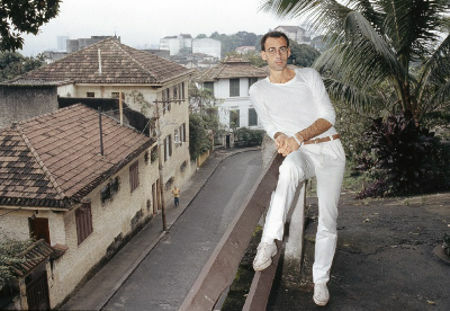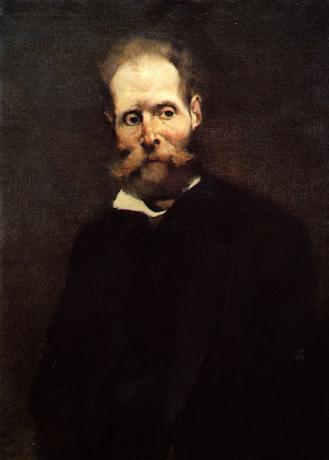Playwright, novelist, chronicler, short story writer and... poet. Maybe you've never heard of the lyrical facet of Caio Fernando Abreu, one of the most popular and important writers of Brazilian Literature, but the truth is that he also has a poetic work, a work little known and explored. Acclaimed for his prose, Caio moved through different genres, but the poetry kept carefully kept in diaries because he thought they had no literary value.
Just read a single poem to realize that the writer, known for his perfectionism, was wrong. Although his prose is highly poetic, the verses written by Caio express his lyrical vein in an incomparable way. Like everything he wrote, the poems by the writer who is highly paraphrased on social media are visceral and deal with issues that permeate all of his work, such as love, pain, passion, loneliness, death, desire, among others, always approached through a transgressive language and very close to colloquiality.
The poems remained unpublished for sixteen years, when they were finally published. Unfortunately, the book
Unpublished poems by Caio Fernando Abreu, which compiles one hundred and sixteen poems written between 1960 and 1996, the year of his death, is out of print, but Brasil Escola will show five poems from Caio Fernando Abreu for you to read, like and share. Good reading!east
send me vervain or benzoin in the next crescent
and a purple patch of mind-blowing silk
and silver hands still (if you can)
and if you can more, send violets
(daisies maybe, if you want
send me osiris on the next crescent
and a gaping eye of madness
(a pentagram, transparent wings)
send everything to me by the wind;
shrouded in clouds, sealed with stars
tinged with rainbow, wet with infinity
(sealed from the east, you found it)
by route
(Bordeaux, March 1993)
Maybe Mozart si loin,
maybe the afternoon among the laurels,
peut-être le coucher du soleil?
They call names in memory:
oh winter that never ends
ah want to cry without pain.
By time, by losses,
for the things, for the people,
Do not stop now... There's more after the advertising ;)
that pass and wander through the notes of the piano,
TGV windows, hotels, insomnia,
workstations, backpacks, cabins.
All over again, enter the mist
this last afternoon in Bordeaux.

Caio Fernando Abreu in the neighborhood of Santa Teresa, Rio de Janeiro. Image courtesy Márcia de Abreu Jacintho
stone song
(Porto Alegre, 1996)
I like to look at the stones
that never leave there.
do not desire or crave
never be what you are not.
The being of the stones I see
it's just being, completely.
i want to be like the stones
that never leave there.
Even if the stone doesn't fly,
who will know of your dreams?
Dreams are not wishes,
dreams know how to be dreams.
i want to be like the stones
and never leave here.
Always be, completely,
wherever my being is.
come browse my life
come browse my life
Pretend my body is a river,
Pretend my eyes are the current,
Pretend my arms are fish
pretend you are a boat
And that the nature of the boat is to sail.
And then browse, without thinking,
Without fearing the waterfalls of my mind,
Without fearing the currents, the depths.
I will make myself clear and light water.
So you can cut me slow, safe,
Until we dive together in the sea
Which is our port.
I've been navigating the uncertain for years
I have been navigating the uncertain for years.
There are no routes or ports.
the seas are of mistakes
and the previous fear of the rocks
it traps us in false lulls.
The islands on the horizon, green mirages.
I didn't want anything else
to look at stars
like someone who knows nothing
to exchange words, maybe a touch
with the deaf box on the side
but I'm afraid of the ghost ship
lost in spikes on the poop
I give the face and form blurry shapes.
The full moon decreases every day.
There are no answers.
She just wanted a friend where she could play her heart
like an anchor.
By Luana Castro
Graduated in Letters



